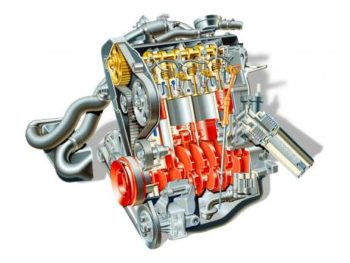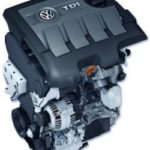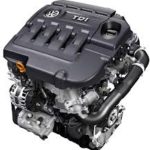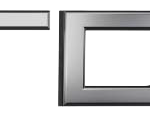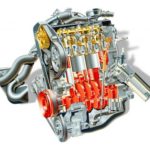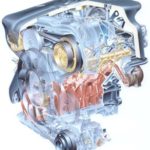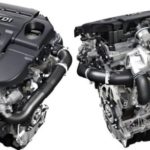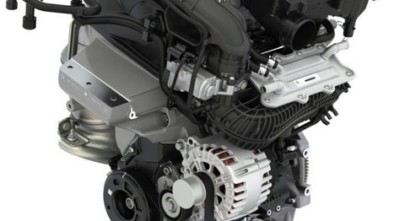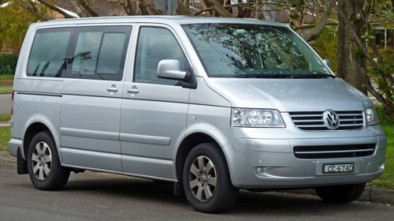TDI engine - Turbocharged Direct Injection engine - history
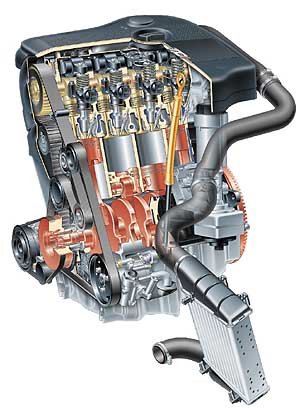
TDI engine
Abbreviation TDI engine (Turbocharged Direct Injection) is a designation used for turbocharged direct injection diesel engines.
Structurally simpler engines without turbines are FDI. Fuel injection is controlled by the engine ECU, which also adjusts the turbine pressure. The TDI engine injects high-pressure fuel directly into the cylinders. High pressure fuel is well dispersed and forms so-called. homogeneous mixture. The control unit determines the timing and amount of fuel injection, resulting in better performance and lower fuel consumption.
When we trace the abbreviation TDI throughout history, we find that direct-injection turbo diesel began to be used in the 20s in marine engines and locomotives. The successful application of direct injection in automobiles, however, aggravates mainly the problems of rough engine operation, as in the past they worked with less efficient internal combustion engines. The imaginary barrier was dismantled in 1986 by Fiat Croma, which became the first mass-produced direct injection diesel vehicle. There was a Turbo D id SOHC 1929 cc with 94 hp.
The VAG Group has become synonymous with TDI turbo-diesel engines. The TDI engine premiered in 1989 as a 2,5-liter five-cylinder in the Audi 100. In various forms, it then appeared in other VAG Group models.
Probably the most popular option is the powerful and very economical 1.9 TDI. Installed for the first time in 1991 in the Audi B4 1.9 TDI, 90 hp and 182 Nm of torque, acceleration to 100 km / h for about 14 top speeds of 175 km / h and consumed about 5,5 liters of fuel per 100 km. In practice, it is a realistic chance to cover 1200 km without refueling. An additional advantage of this engine is that it proved to be without problems with starting at low temperatures and above average endurance. Innovative design, introduction of fuel injection directly into the combustion chamber. The 1.9 TDI engine is based on the old 1.9 TD engine - the cylinder head has been changed, a different head and a different injection system - direct injection with a high-pressure pump "Bosch pump" - a key element in increasing its efficiency. Stronger versions appeared on the market very quickly. The engine was powered by the most popular models produced by the German group (Audi, Seat, Škoda, Volkswagen).
The next phase of development is the 1.9hp 110 TDI version. It appeared in 1995 and is characterized by a variable geometry turbine. 1.9 TDI engines are quickly introduced to other cars by the company.
Over time, it turns out that the 1.9 TDI engine, in addition to good power parameters, is also stable and not too expensive to maintain. Of course they have weaknesses (mostly EGR valve and turbine after high mileage), with regular maintenance should work 40000 - 500000 km without major problems.
Meanwhile in 1994, during the presentation of the successor to the Audi 100, the Audi A6 shows a new version of the 2.5 TDI engine - this time with 140 hp, with a standard six-speed transmission and optional all-wheel drive, the famous quattro.
In 1997, with the introduction of a new model Audi The C5 A6 is the first 2.5 TDI V6 introduced. Volkswagen introduced the first two years later Audi A8 with 3.3 TDI V8. Both of these engines are dynamic with low fuel consumption and quieter than their predecessors, but as far as exploitation is concerned they are not a nice opinion.
These high-mileage engines have costly failures, including flowmeter and timing. This is why vehicles with these engines can buy at a low price.
In 1998, a new generation 1.9 TDI appeared on the market - 1.9 TDI PD. It features the use of a pump-nozzle injection, which replaced the traditional nozzles and a pump, which made it possible to raise the injection pressure to 2050 bar. It also increases the power of the 1.9 TDI engine family. The basic version with 100 hp is 115 hp stronger, and later the most powerful version of 130 hp was introduced.
This solution helped to increase the injection pressure and thus reduce fuel consumption and improve performance again. In this case, unfortunately, a small side effect has already appeared - slightly higher maintenance costs.
The only accusation against the 1.9 TDI and 1.9 TDI PD is that they are quite noisy. Fortunately, this inconvenience is only felt in lower-class cars and generally at low speed. When driving at a speed of about 100 km / h, there are no acoustic problems. It is important to note that in order to counteract the vibration, the manufacturer of these engines uses engine mounts with expensive oil-filled cushions. The use of inexpensive retainers made entirely of rubber and metal impairs comfort.
In 2001, he debuted the smaller brother of the engines described. An efficient, three-cylinder 1.4 TDI is introduced. Although the work was restless and noisy, the engine maintains the advantages of its larger predecessors.
A variation of this engine is also the 1,2 TDI, mounted in the Vw Lupo and Audi A2. They emphasized the benefits of the TDI family and promoted low fuel consumption of less than 3 l / 100 km.
1.9 TDI survived in various forms for 19 years, until the end of 2010 and the entry into force of the Euro 5 standard, but they have long talked about successors. In 2003, with the introduction of the fifth-generation Vw Golf, a new 2.0 TDI was introduced. Also in 2009, the 1.9 TDI replaced the 1.6 TDI engine.
Although Volkswagen the group has long proven that the pump-nozzle system will be popular in the future, however, in 2003, it relented and introduced the 3.0 TDI with a common rail system and a piezo injector. The common rail system has been gradually introduced to other types of TDI engines and has been in all TDI engines since 2009.
In 2006, it was boldly decided to get into the sport of TDI motorm. Equipped with a V12 TDI, the Audi R10 TDI race car reached 650 hp and won the famous Le Mans three times in a row (for the first time in 2006). He also succeeded with his successor, the Audi R15 TDI.
They used the sport's successes to build the most powerful diesel engine in passenger cars. 6.0 V12 TDI engineered yes Listen Q7 the model achieves 500 hp and 1000 Nm of torque, which enabled this colossus a performance worthy of a sports car (0 - 100 km / h in 5,5 seconds).
Recommendation of similar texts:

Hi there, I am Mladen and I am an auto enthusiast. I started this blog years ago to help like minded people share information about latest cars, car servicing ideas, used car info, exotic cars, and auto technology. You will find helpful articles and videos on a wide variety of cars - Audi, Mercedes, Toyota, Porsche, Volvo, BMW and much more. Ping us if you have anything cool to share on latest cars or on how to make older cars more efficient, or just want to say hi!

